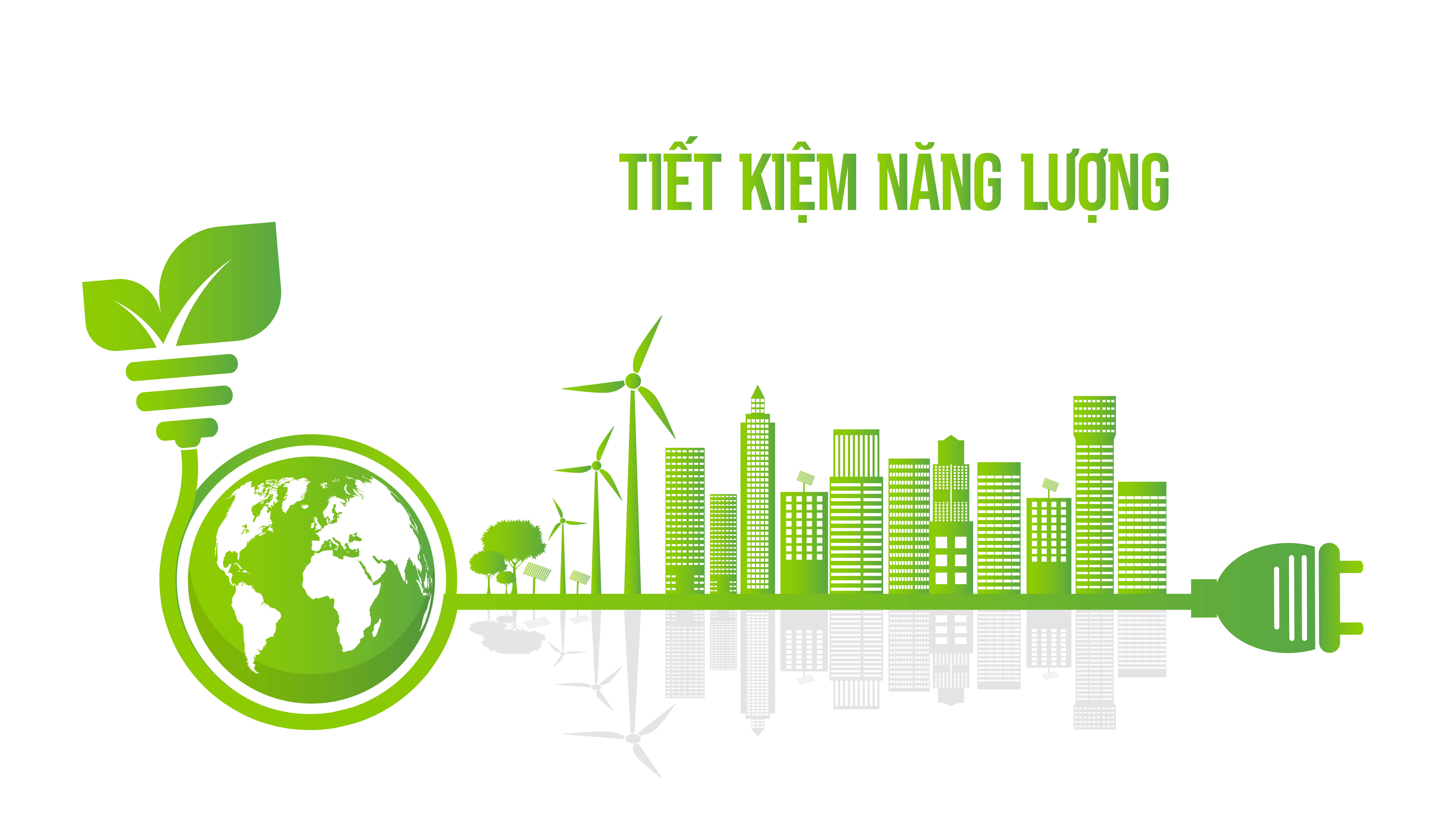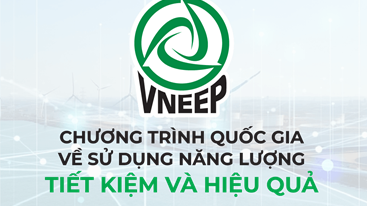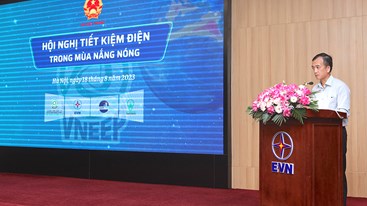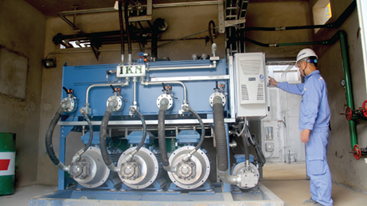The Prime Minister has assigned the Ministry of Industry and Trade (MOIT) to conduct research and review the Energy Efficiency and Conservation Law to report to the Standing Committee of the National Assembly for consideration in the Law and Ordinance Construction Program for the 2023-2024 period.
In carrying out the assigned task, MOIT has submitted a research report reviewing the Law on Using Energy Efficiency and Conservation to the Government. Additionally, MOIT has led and collaborated with other Ministries and sectors to conduct research and organize thematic workshops consulting related agencies.
Law No. 50/2010/QH12 has affirmed the consistent viewpoint of the Government considering the Use of Energy Efficiency and Conservation as a top priority policy.
A harmonized legal document system.
The Law on Use of Energy Efficiency and Conservation (Law on EEC – Law No. 50/2010/QH12) was passed by the 12th National Assembly of the Socialist Republic of Vietnam during its 7th session on June 17, 2010, and came into effect on January 1, 2011. The enactment of the Law on EEC marks an important milestone in the process of developing legislation on EEC in our country.
The Law on EEC consists of 12 Chapters, 48 Articles, regulating the solutions for using energy efficiently and effectively in various sectors, economic and social fields, and stipulates the rights, obligations, and responsibilities of organizations and individuals in using energy efficiently and effectively. Along with the birth of the Law on Use of Energy Efficiency and Conservation, a system of legal normative documents was urgently developed and issued, creating a relatively complete, harmonized legal framework, ensuring the enforceability of activities in the field of using energy efficiently and effectively.
For the first time in our country, there is a unified law regulating activities in the field of Using Energy Efficiency and Conservation (EEC). The law has affirmed the consistent viewpoint of the Gorvenment considering EEC as a top priority policy, playing an important role in implementing the economic development strategy in conjunction with energy security and environmental protection, in line with the requirements of a market economy regulated by the Government and international economic integration.
The Law on EEC has established a legal framework, removed barriers, and specified regulations on management measures, techniques, and policies to promote the use of energy efficiency and conservation in all industrial production, agriculture, transportation, civil construction, lighting, and community living activities, facilitating the synchronous deployment of sustainable EEC activities in the country.
Legal documents on Using Energy Efficiency and Conservation (EEC): - 02 Government Decrees detailing enforcement measures and penalty sanctions - 02 Decisions by the Prime Minister issuing national technical standards on energy performance control for energy-consuming devices - 16 circulars specifying energy consumption rates and measures for efficient and effective energy use in industries, construction, transportation, agriculture, and operation guidance documents for the implementation of regulations on energy efficiency and conservation have been issued. - 26 legal documents have been issued at the Central level; - 30 sets of minimum energy performance standards applied to target equipment groups, accompanied by testing methods, - 12 Decisions on the designation of 12 energy efficiency testing facilities - 16 operation guidance documents have been issued. |
Meet the new requirements
After more than 10 years of implementation, it is now necessary to study and amend some contents specified in the Law on EEC and related regulations to timely adjust the social relations arising in practice in the activities of production, supply, and use of energy (electricity, coal, petroleum, renewable energy, etc.).
According to experts, many contents of the law are still of an encouraging nature, and the mechanisms for enforcement and penalties for violations are not strong enough; the implementation of the law still faces many difficulties and limitations. The law does not specifically prescribe solutions to promote the energy-saving services market. Energy auditing activities face unhealthy competition, and the quality of energy audits is low, lacking an independent agency to verify the quality of energy auditing and consulting services.
Particularly, the law does not set out a legal framework for developing the energy-saving market through the mechanism of implementing energy performance contracts according to the ESCO model.
The absence of regulations for the supervision of consultancy units has led to management issues such as uneven consultancy quality, lack of regulations on the quality of energy auditing equipment, regulations to promote the energy-saving market; the provisions on incentive mechanisms and encouragements in the Law are still not specific, leading to the preferential policies for activities using energy efficiently and effectively not being implemented.
In addition, Vietnam has committed to achieving net-zero emissions by 2050 at the United Nations Climate Change Conference (COP-26), with the "Net Zero" commitment. Vietnam needs to consider amending the Law on Energy Efficiency and Conservation, which has been effective since 2011, towards establishing.
Energy-saving solutions are also among the requirements to contribute to the implementation of the Eighth National Power Development Plan (Decision 500/QD-TTg dated May 15, 2023, by the Prime Minister approving the national power development plan for the period 2021 - 2030, with a vision towards 2050).
Resolution No. 55-NQ/TW dated February 11, 2020, by the The Political Bureau on the orientations of the national energy development strategy of Vietnam to 2030, with a vision towards 2045, has laid out the guiding viewpoint: "Using energy efficiency and conservation, protecting the environment must be considered a crucial national policy and the responsibility of the whole society; building a coherent mechanism, policies, strong and feasible sanctions to encourage investment and use of energy-saving technologies, environmentally friendly equipment, contributing to promoting labor productivity and innovating growth models. The resolution introduces new requirements for innovating mechanisms, policies, and developing the energy efficiency market in a synchronized and specific manner.
Proposal to adjust energy usage levels for current key energy-using establishments in the industrial and civil construction sectors.
Focus on 5 content groups
The Ministry of Industry and Trade has received comments and consultations from 12 ministries, 63 provinces and cities, and 70 corporations proposing amendments to the Law on Energy Efficiency and Conservation. Currently, the Ministry of Industry and Trade is compiling and incorporating these comments and proposals, preparing to submit the proposed amendments to the Prime Minister.
Accordingly, the draft proposal focuses on 5 main content groups, addressing current shortcomings while also promoting energy efficiency in the coming period.
Group 1: Policy related to energy management
- Consider adjusting the energy consumption levels for current key energy-consuming facilities in the industrial and civil construction sectors; add specific regulations on the obligation to comply with the Law's provisions for key energy-consuming facilities to match the current situation.
- Specify more detailed (mandatory) regulations on developing and applying energy management models at key energy-consuming facilities in the industrial, construction, and transportation sectors.
- Strengthen the responsibility of local authorities in checking compliance with standards, regulations, and energy consumption norms of businesses in their locality.
Group 2: Policy related to energy service consulting companies and the network of energy service consulting units
- Research and propose detailed regulations on business conditions for organizations practicing energy auditing following the 2020 Investment Law.
- Study the development of support mechanisms and the formation of a system of energy service companies.
Group 3: Developing legal frameworks and market tools for energy-saving
- Add the model of a Fund to support activities of Energy Service Companies, research financial tools such as capital guarantees, risk sharing, technical support for businesses to implement...
- Research and propose financial tools to support activities related to arranging investment capital, sharing profits, investment risks, capital mobilization mechanisms...
- Research and develop legal bases to support energy service activities according to international practices and suitable for Vietnam’s conditions.
Group 4: Issues related to the management of energy performance of equipment in the market
- Review and research incentive mechanisms to encourage businesses to invest in developing more efficiency products with market-oriented features, gradually eliminating devices, equipment, and products with low energy efficiency.
Group 5: Human resource development policies in the field of Using Energy Efficiency and Conservation
- Amend or supplement the legal regulations related to training activities to improve professional capacity including initial training, knowledge updating, advanced training... for organizations, individuals consulting in the field of energy efficiency, energy auditors, and energy management staff at energy-using establishments.
- Build a network of expert linkages, training organizations, and businesses, to leverage resources and facilitate mutual support among organizations/businesses in the implementation process at the local level.
Propose the establishment of a Sustainable Energy Development Fund
Resolution No. 55-NQ/TW dated February 11, 2020, by the Political Bureau on the orientation of the national energy development strategy of Vietnam until 2030, vision towards 2045, demands: “To build a legal foundation that can effectively form and operate funds for sustainable energy development, promote the use of energy efficiency and conservation in a socialized manner, ensuring financial independence, not overlapping with the revenue, expenditure tasks of the state budget and limiting the increase of operational and business production costs for enterprises, business establishments.” This is a new content, not yet regulated in the Law on Using Energy Efficiency and Conservation.
Upon review, the Ministry of Industry and Trade states that the laws on using energy efficiency and conservation in various countries all have regulations on preferential policies, support tools, and incentives for using energy efficiency and conservation. These policies mainly focus on incentives related to: income and land tax for companies producing energy-efficient equipment, import tax on energy-efficient equipment, tax incentives for companies that fulfill their commitments on efficient energy use, preferential loan interest rates for energy efficiency investment projects, support for scientific research, and the implementation of agreements between the government and companies on executing energy efficiency solutions.
Support mechanisms for energy-saving projects through the Energy Efficiency and Conservation Fund have also been implemented in some countries such as Thailand (the Energy Conservation Promotion Fund - ENCON Fund), India (State Energy Conservation Fund - SECFs)...
Drawing on experiences from Thailand, India, and the amended Environmental Protection Law 2022 of Vietnam, the Ministry of Industry and Trade proposes the necessity to amend or supplement an Article related to the formation of financial tools to support the promotion of energy efficiency and conservation such as the "Sustainable Energy Development Fund."
The Ministry of Industry and Trade recommends the Government to assign the competent authority (the State Bank of Vietnam or the Ministry of Finance) to lead the research. If the proposal to amend the Law is approved by the Standing Committee of the National Assembly, the Fund should be operated on a pilot basis to evaluate its effectiveness before a wider implementation.
By Duc Do











.jpg?w=367&h=206&mode=crop) Notice for Contracts award for Support to Industrial Enterprises for Energy Audits and Preparation of Feasibility Studies (Package No. C2.2.4)
04/06/2024
Notice for Contracts award for Support to Industrial Enterprises for Energy Audits and Preparation of Feasibility Studies (Package No. C2.2.4)
04/06/2024
 Training Courses for Energy Managers and Energy Auditors
Training Courses for Energy Managers and Energy Auditors
 Vietnam Energy Outlook Report – Pathway to Net Zero
Vietnam Energy Outlook Report – Pathway to Net Zero
 Long Son Cement saves 30% of electricity consumption thanks to heat recovery
Long Son Cement saves 30% of electricity consumption thanks to heat recovery
 Expression of Interest: C2.1.15: Development of Energy-Efficient Technology Catalogs for the Industrial Sector
Expression of Interest: C2.1.15: Development of Energy-Efficient Technology Catalogs for the Industrial Sector
 Optimizing Compressed Air Systems for Southern Industrial Enterprises
Optimizing Compressed Air Systems for Southern Industrial Enterprises
 The Ministry of Industry and Trade Review the Energy Efficiency and Conservation activities in Lao Cai.
The Ministry of Industry and Trade Review the Energy Efficiency and Conservation activities in Lao Cai.
 EOI Extension: C2.2.2: Review and update for current EE benchmarking for 2 sub-industrial sectors
EOI Extension: C2.2.2: Review and update for current EE benchmarking for 2 sub-industrial sectors